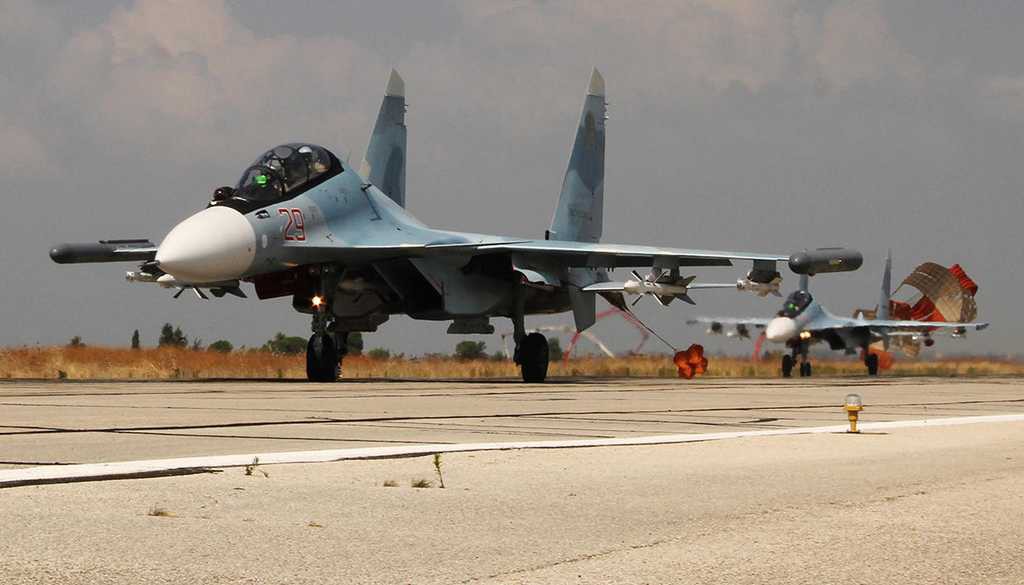
President Vladimir Putin by sending its troops into Syria from cold Russia, believed that Russian intervention becomes a simple "walk", and the Russian military will be able to enjoy the Sun and the air of Syria away from the Moscow Morozov. Guided by this weighty argument, Putin hastened to send troops in September, rather than waiting for "Syrian" spring, scheduled for late March.
Of course, the reason for the haste, Putin was enough. Firstly, his longing to return the Russia its place in the warm waters of the Mediterranean. In addition, there are many reasons that influenced the decision of the President of Russia. Here and the pursuit of quick strategic political gains, and Assad and the approval of the request from the Iranian side, the involvement of a strong Russia, to defend the regime, help him regain their positions in Syria, as well as the absence of any obstacles from the Israeli side and the United States. Moreover, these countries seems to have reconciled with the large-scale Russian presence in Syria in the context of weak regional and international position to counter Russian foreign policy.
All of the above items lined up in front of Putin in a single picture, enabling to send Russian troops into the region along with airplanes, anti-aircraft missile complexes, as well as naval and land forces, which if necessary, support will be provided by the Caspian Sea. There are two factors bolstered Putin's decision. The first factor, domestic concerns limitations prescribed in the budget of the Ministry of Defense of Russia, against orders and military operations carried out by Russian troops. The second factor which prompted Putin to action concerning the nature of the force, which was expected, will also participate, together with Russian troops in battle. I must say, this force is seriously limited in number, weaponry, there is a lack of expertise and capabilities compared to Russia. In addition, it weakened a number of internal problems and contradictions, as well as the lack of a strong and effective support, political and material related parties of the case.
Despite the fact that the declared objective of Russia was the fight against terrorism and the Organization of the IGIL, has become a common international problem, Russian forces concentrated their actions mainly on combat armed forces moderate opposition that Moscow attributed to terrorist organizations, although some of them are supported and armed by the United States and its allies over the past several years.
The Russian intervention in Syrian conflict radically changed the balance of power between the Assad regime and its allies in the face of Iran and armed opposition forces. Air operations Russia even more exacerbated an imbalance because the opposition failed to give an adequate response to the massive attacks on Russian modern military aircraft, equipped with the ultra precise high-tech weapons. The brutal Russian Aviation relentlessly hit military and civilian targets indiscriminately, including social facilities of the opposition in the towns and villages, resulting in horrific casualties: killed, wounded and an enormous number of refugees. However, all this is included in the plans and was part of the strategy.
The results of the Russian intervention are all familiar, including complete imbalance of power in addition to aerial bombardment and reconnaissance activities, supported by the forces of the regime in areas controlled by the opposition. But despite the incredible resilience shown by the rebels on most fronts, they were forced to leave most of the territories of the locality of Aleppo, as well as to pass Latakiû.
The balance on the battlefield, as well as internal and external circumstances affecting the situation — all this made "outing" of Russia in Syria more difficult than expected. Statements by Russian officials who insist on continuing military operations in the region, the achievement of targets set for the future, saying that the situation in the country has become much more serious than anticipated, and with no end in sight yet.
Despite the fact that Russia stubbornly seeks conceived within the framework of their interests and serve the interests of the Assad regime and its allies in northern Syria, she does not have any guarantees for the future. Today on the external and internal levels of conflict there are advances, disadvantageous for Russia: on the one hand, in the ranks of the opposition there is a clear convergence of views and mutual retreat from internal contradictions. With regard to the external factor, serious step made Turkey and Saudi Arabia, demonstrating its capabilities and influence on the situation in the region, including through the establishment of an Islamic coalition with the designated position. Neither the United States nor the West and Russia and Iran will not be able to ignore the joint output of Muslim countries. Moreover, two important things may occur that can affect the situation in the region. Firstly, there is the possibility of the disorder between the Western coalition and the two strongest players — Saudi Arabia and Turkey.
Secondly, the situation could lead to a confrontation between Saudi Arabia and Iran, as well as between Turkey and Russia, but none of these scenarios is extremely undesirable and can lead to even greater conflict in the region.
Prospect of Syrian standoff outside it will turn the "easy walk" in disaster for Russia, "strolling" Russians can return to their homes in wooden boxes, like returning Iranian soldiers and fighters of the Lebanese Hezbollah.
